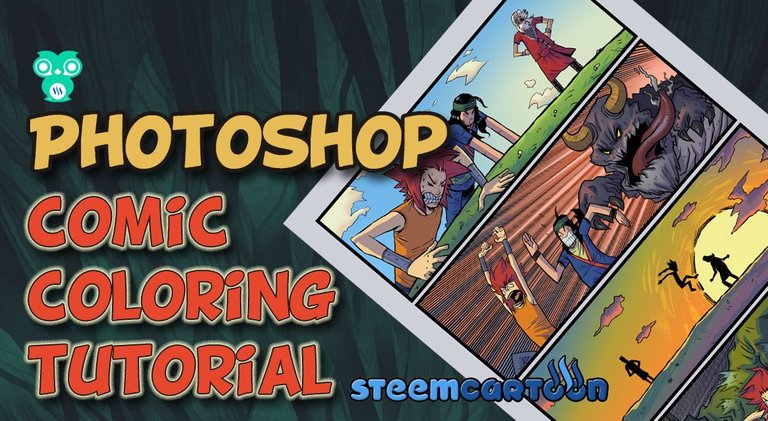
credit to the artist ADAL
colorist by @aurah
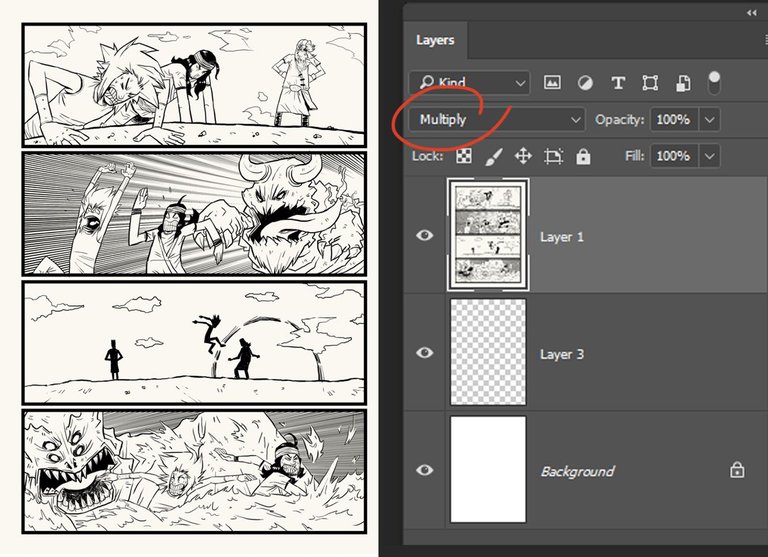
Colouring comic setup. After finishing the digital inking process, ensure the position of the layer, just like the picture above. Create 2 layers with one normal layer for the coour at the bottom and above is the multiply layer for black and white outline.
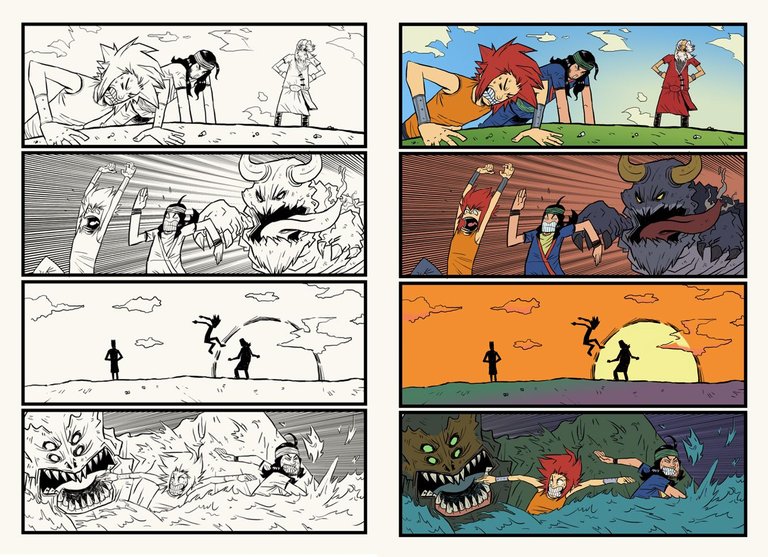
Click on the normal layer. This layer you can colour it with flat colour by using the paint bucket tool. If there is a break in the line, use a normal brush to close the gap by using the colour of choice. Then you can use the paint bucket again. I usually use thick colours within the middle range colour for my process for overlay layer to make it shine.
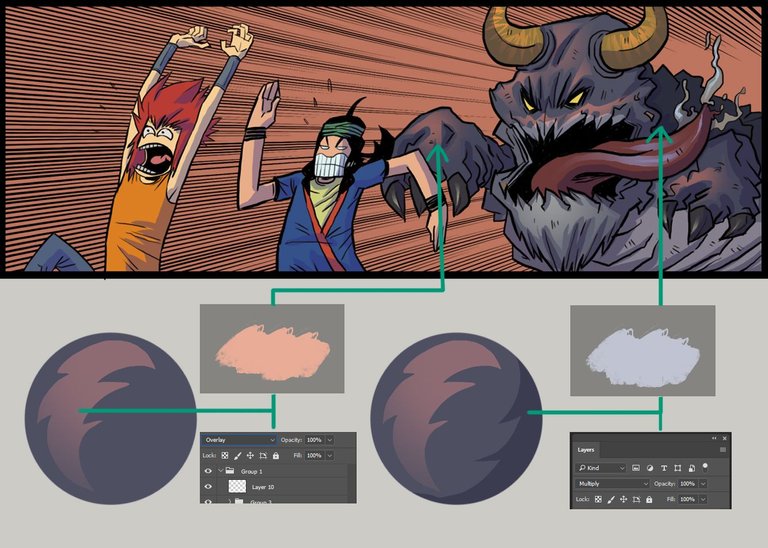
Once the flat colour is finished we move on to the lighting and shadow chapter. You can see fro the picutre above how I choose laywer overlay for my lighting and for the shadow I use multiple layer with the colour of light blue.
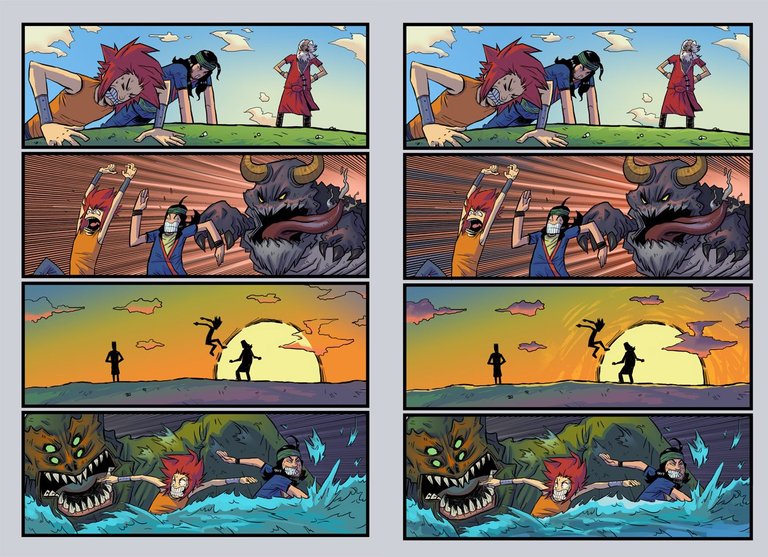
Once all the final colour for my character is completed, I will focus on the background colour. For the lighting and shadow I will use the earlier process that is to highlight for overlay and multiply for shadow.

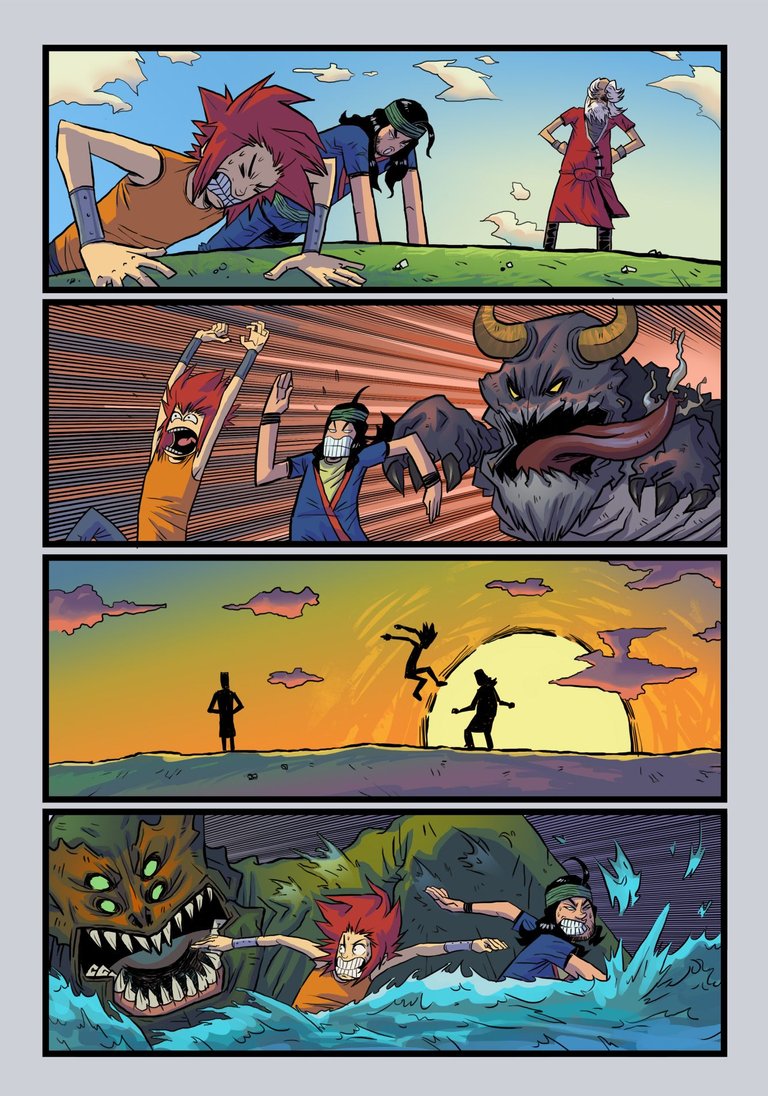
Now we can see the detail of the work that I have just finished.
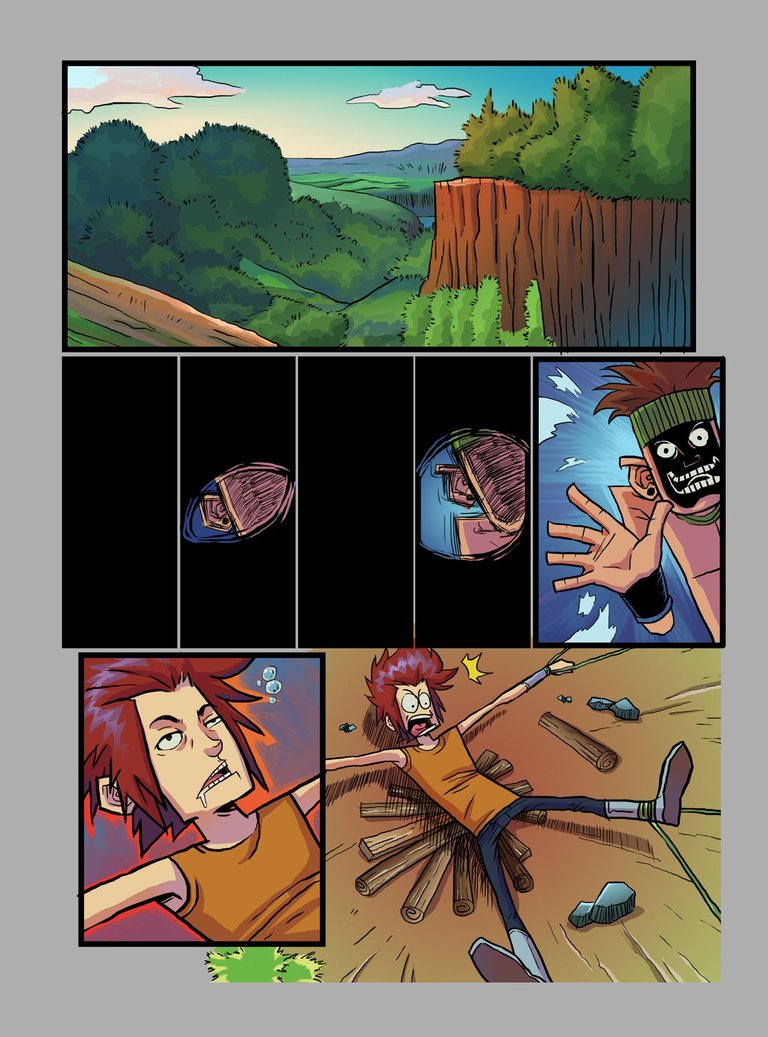
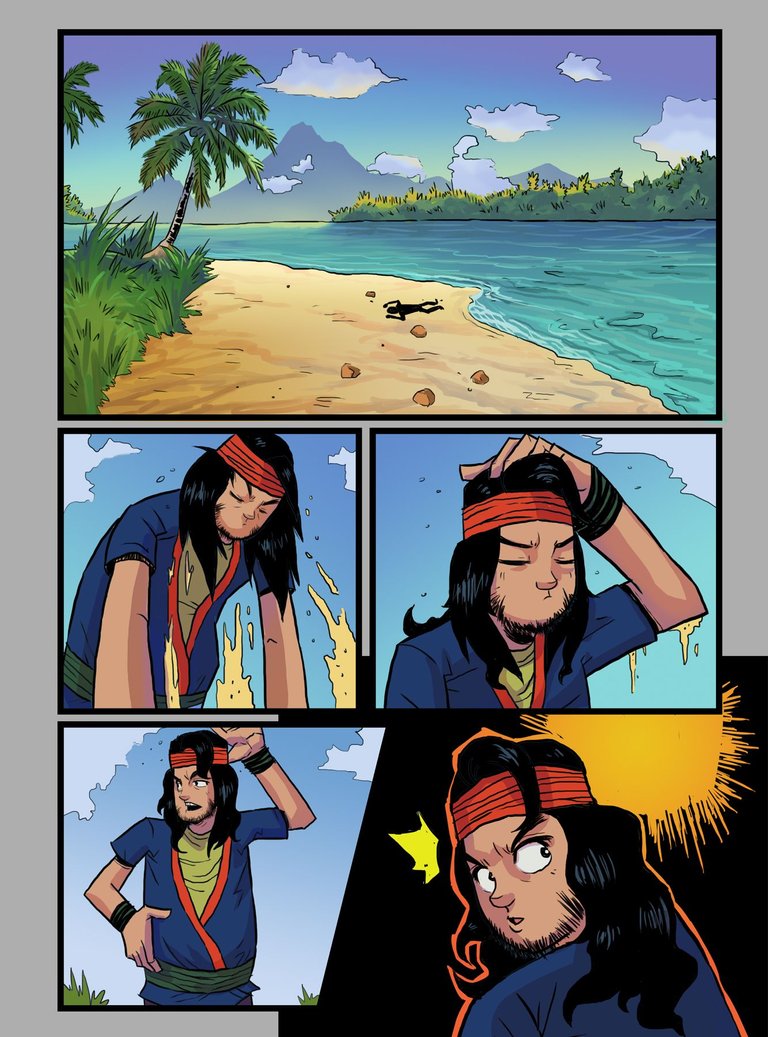
It is quite common for the art work to be prepared by one artist and the colouring to be completed by another. Somehow the difference in interpretation of the work do create amazing result.
 credit to @zord189
credit to @zord189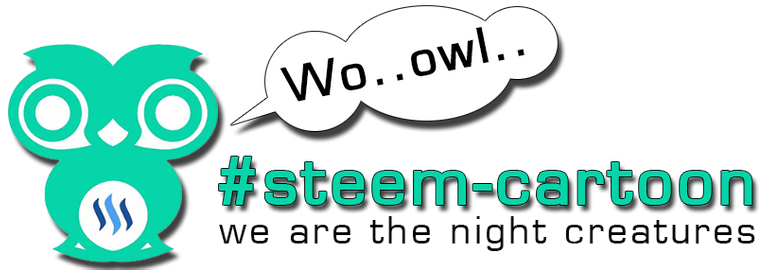 credit to @zomagic
credit to @zomagic
Awesome! What's the reason to use "multiply" for the ink layer, rather than just keep it at "normal"?
Thank you sir...the reason to use multiply layer is to make sure that the black color will absorb any color which is under the multiply layer.in this artwork, i have faced a problem , because it was inking manually on paper so I chose to use multiply layer.You also can use the normal layer, but must make sure that white colour will transparent first.
Terbaik bro..boleh tolong color komik saya plak pasni bro hehehe
Tq bro.. hehe no problem punya..roger roger jer..
Wow, I never thought to use such a light color for the shadows. But setting it to multiply will definitely make it darker, so it makes sense. I have also been using screen for my highlights, but I think overlay might be the way to go.
Thank yo so much for sharing your insight and expertise!
You are welcome.You can try overlay layer for medium high light and linear light layer for high light.Thank you for your attention.
probably a very interesting exercise to paint comics. you're good at.
:D Thank you
I would love to see a webcomic made by you :D! your artwork is aesome, I will start following you :D. Also I wanted to invite you to a Discord Server I'm running called Steemit Webcomics It's a place specially for people who like to write or read comics, webcomics, comicstrips, etc. It's just starting out so not many people is there yet, but the idea is to grow the community so people can start sharing and collaborating on the creation of comics. I will share you comic as well so people who join the group can also see your blog.
thank you for the invitation @cobmaximus. :)
:D! I hope you pop up there one day :D
oh my gosh this is awesome. Thank you for sharing~~~
I always find it really interesting to find out about different artist's processes. I like to try stuff out and then cherry pick what I like, and feel works for my own workflow haha
thanks you..this is one of a simple steps to everybody want to do the digital comic colouring.Hopefully useful.
most definitely useful! thanks again :)
Thanks for sharing this.